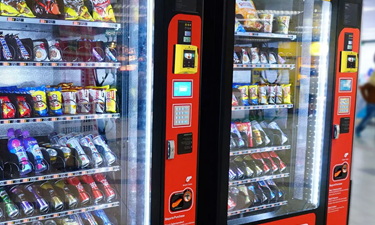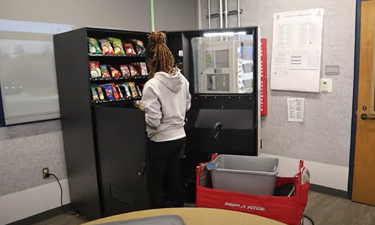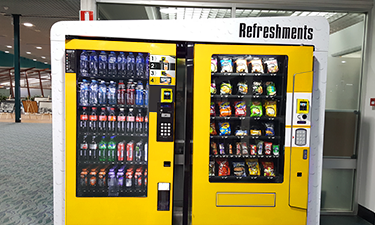Editor’s note: This blog was originally published in August 2018 and was recently updated for accuracy.
Starting a vending machine business can be a profitable and exciting venture for entrepreneurs. However, before buying a vending machine business or route, there are several important questions you should ask yourself, and get the answers to, to ensure your business will succeed.
When starting a vending machine business, should I buy or rent a vending machine?
This is probably the most important question you should ask yourself when you start a vending business. New machines typically cost upwards of $3,000, which require a lot of money up front. If you want to test the demand, renting or leasing a machine might be a good option for you. Leasing often gives you the option to pay in to buy the machine at the end of your contract, making it a great starting point for your business.
However, though buying a machine means big upfront costs, it also ensures that you don’t have monthly expenses and is more profitable in the long run.
Where should I place my vending machines?
The location you place your vending machine at will greatly affect your business’ success. Locations with higher foot traffic will help increase your chance of sales. You also want to make sure your machines are placed in a safe and secure environment to reduce the risk of vandalism or theft.
When thinking of starting a vending business, we recommend that you scout out potential locations first and get a sense of the benefits each site can offer you. Each site will have its own requirements or expectations when it comes to products, so coming prepared and having an open mind is essential.
Once you’ve decided on a location and on the products you’d like to sell, you can come up with a business plan and calculate your expected revenue. This can help you decide whether to buy, rent, or lease your machine at first.
Another important question to ask yourself is how much time do I have to invest?
Running a vending machine business can be as hands on or hands off as you need it to be, but it’s up to you to decide how much time you want to invest in it. If you don’t have the time to visit your machines every day, you’ll want to make sure to add a cashless card reader and telemetry terminal to your machine.
Telemetry software allows you to receive updates about your machine’s health, stock levels, sales and more. This helps you streamline your operation, knowing when your machine is in need of a visit and what needs to be done, whether you need to attend to a technical issue or restock a particular product. This helps you save a lot of time, and turns your vending machine business into a form of passive income.
Ask us about our vending solutions
And last but not least, what requirements does your payment system have?
The location you choose will also help you decide which payment requirements your vending business needs to address. What kind of payment methods do your potential customers prefer? Will they want to pay with cash or does a fully cashless solution make more sense? Are your machines located in a closed or open environment? If they’re located in a closed environment such as an office building, a university, or a hotel, maybe you’d like to offer closed-loop payments as well so that students, for example, can pay at your machine with their student card.
Once you’ve answered all of these questions, you are ready to start your vending business. If you’re looking for a tried-and-true partner on this journey, Nayax can be there to guide you every step of the way. With a complete solution for vending businesses that includes cashless card readers that accept over 80 payment methods, a vending management system, and loyalty and marketing programs, Nayax can help your vending business succeed. To learn more about our vending solutions, contact us today.




